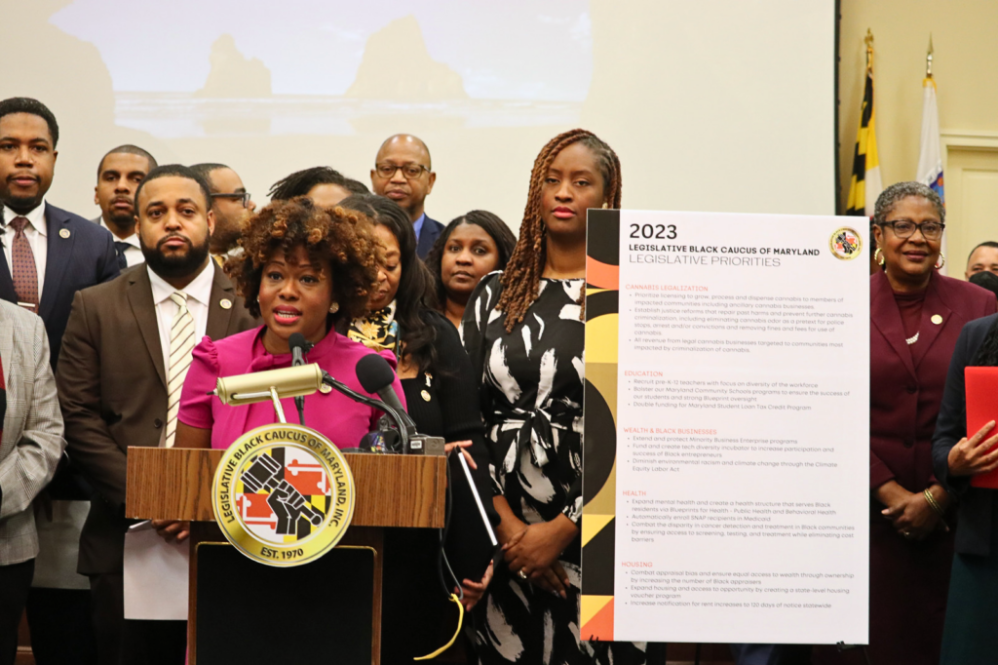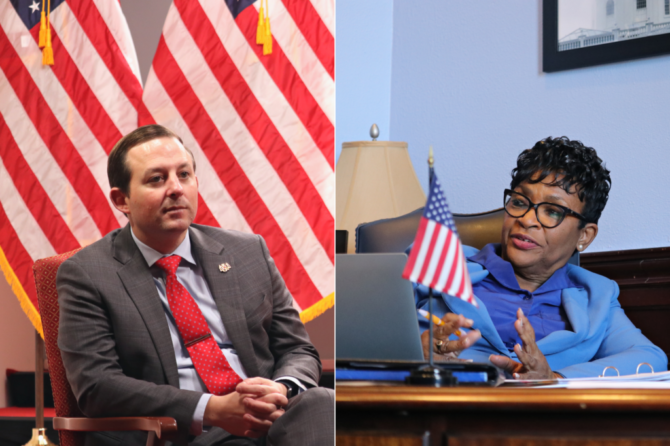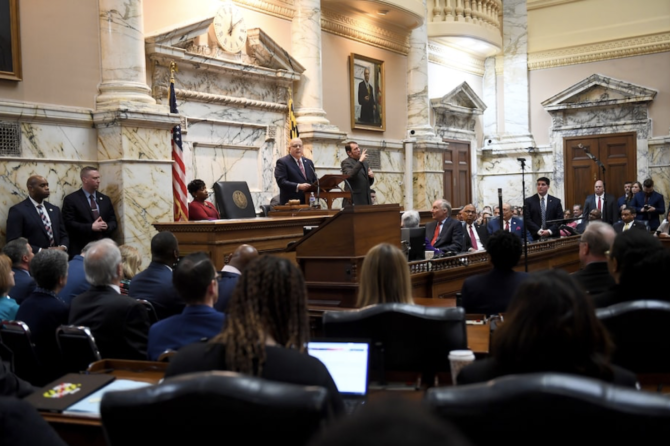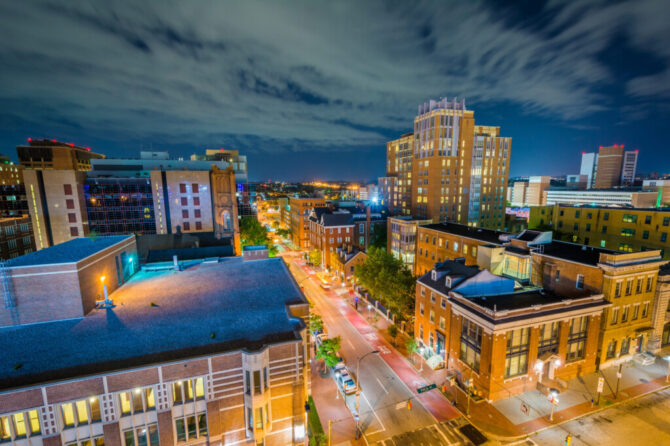MARYLAND MATTERS: Establishing a criminal justice policy that prevents police officers from stopping drivers and searching vehicles just because they smell cannabis and recruiting more people of color to teach in public schools are two of more than a dozen priorities the Legislative Black Caucus of Maryland laid out Wednesday.
Del. Jheanelle Wilkins (D-Montgomery) said that caucus members lead on a breadth of issues and in “key roles to keep the House and the Senate moving as we do the people’s work. We’re excited to deliver on our strength in our leadership this 2023 session and beyond.”
The caucus broke policy priorities into five areas: cannabis legalization, education equity, wealth and Black businesses, health and housing.
In crafting legislation that will define the cannabis industry, the caucus wants to ensure full participation by people of color, including in growing, processing and dispensing cannabis.
A framework for licensing, regulation and taxation of cannabis must be enacted before recreational use can become legal on July 1.
A consulting firm has estimated that, after the industry gets underway, revenue from dispensaries in Maryland could reach about $1 billion within two years.
Sen. Jill Carter (D-Baltimore City) is sponsoring legislation to make certain criminal offenses involving cannabis civil offenses instead, punishable by civil penalties.
For instance, the court would be able to order a person younger than age 21 who is found guilty of possession of cannabis to attend a drug education program approved by the state Department of Health. The Senate Judicial Proceedings Committees plans to hold a hearing on that bill Feb. 1.
That same committee is scheduled to hold a hearing Feb. 2 to review a bill Carter is sponsoring that would prevent law enforcement officers from stopping a motorist solely based on an odor of cannabis without any evidence of intoxication or other valid cause.
“Courts have been divided about odor searches. But now, as marijuana will be legal, it would be an illegal activity for law enforcement officers to continue to use it as a pretext — the odor of marijuana,” Carter said. “What we’ll have is partial legalization and Black people will be vulnerable to existing arrest patterns where they will continue to be disproportionately targeted by law enforcement and saddled with criminal records as a result of marijuana legalization.”
To combat bias that has led to undervaluing homes, businesses and other real property that is owned by people of color or is in minority neighborhoods, legislation is being worked on to encourage, and educate, more Marylanders to become appraisers through a program called PAREA, said Del. Marvin Holmes Jr. (D-Prince George’s).
Similar legislation has been approved in other states including Iowa and lawmakers in New Jersey are reviewing legislation that would require appraisers to complete anti-bias training.
Other proposals backed by the caucus, including some in draft form and some yet to be filed, are:
- Doubling funds for the state’s Student Loan Tax Credit program — to be sponsored by Del. Karen Toles (D-Prince George’s).
- Establishing the Small Business Protection Act to ensure minority-owned businesses are involved in the procurement process for state contracts — to be sponsored by Del. Nick Charles (D-Prince George’s) and Sen. Antonio Hayes (D-Baltimore City)
- Creating a Commission on Public Health to focus on equity, the state’s response to COVID-19, racial and ethnic disparities in maternal mortality and birth outcomes and other health measures — a bill sponsored by Del. Arianna Kelly (D-Montgomery County).
- Establishing a statewide housing voucher program with an upfront investment of $15 million.
The 64 legislators in the caucus, which Wilkins said is the largest Black caucus in the nation, are a powerful voting bloc and include four major leaders from both chambers: House Speaker Adrienne Jones (D-Baltimore County), Speaker Pro Tem Sheree Sample Hughes (D-Lower Shore), House Majority Whip Jazz Lewis (D-Prince George’s) and Senate President Pro Tem Malcolm Augustine (D-Prince George’s).
“Our strength is not just in our numbers. It’s in our leadership,” Wilkins said. “The Legislative Black Caucus of Maryland stands together…ensuring that every single one of these priorities are passed this legislative session.”
Photo: Del. Jheanelle Wilkins (D-Montgomery) leads a press conference Jan. 25 as chair of the Legislative Black Caucus of Maryland. She summarized the group’s policy priorities for this year’s legislative session. Photo by William J. Ford.










